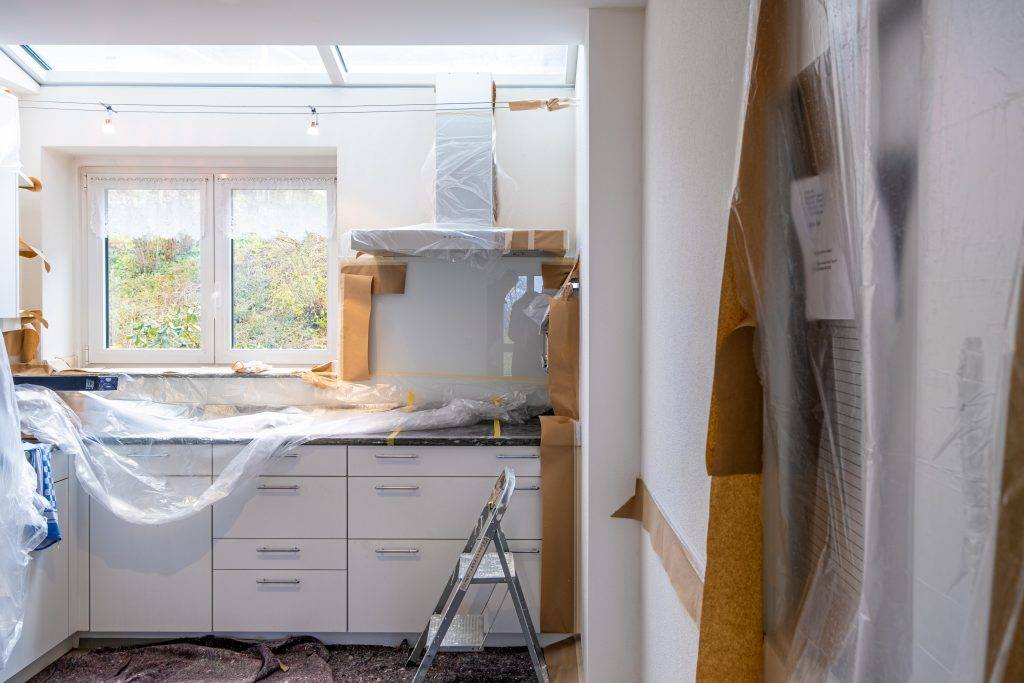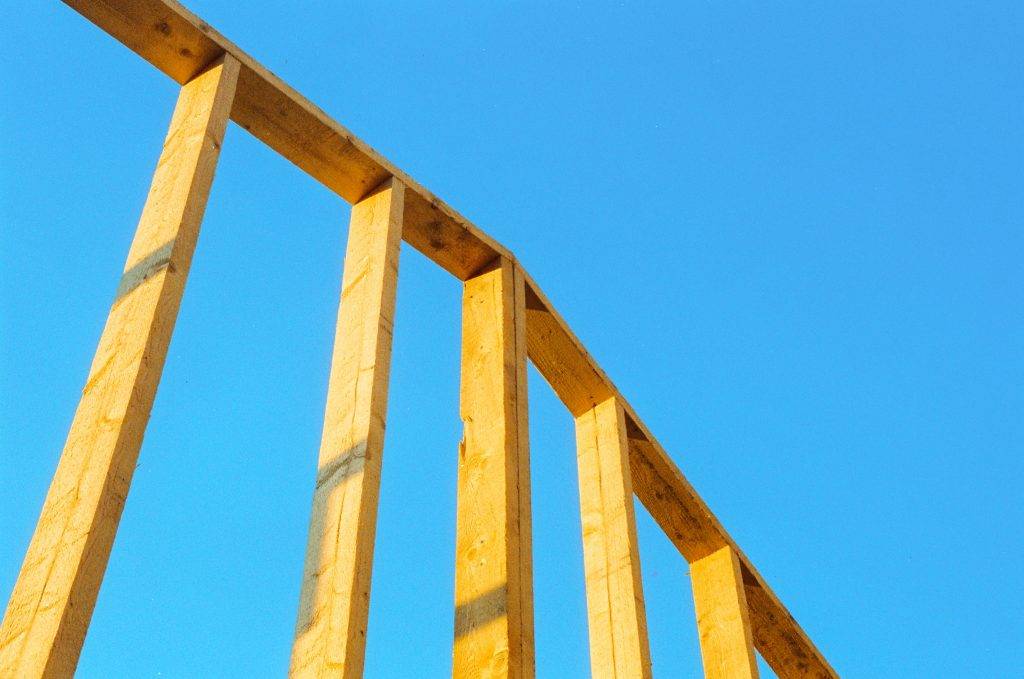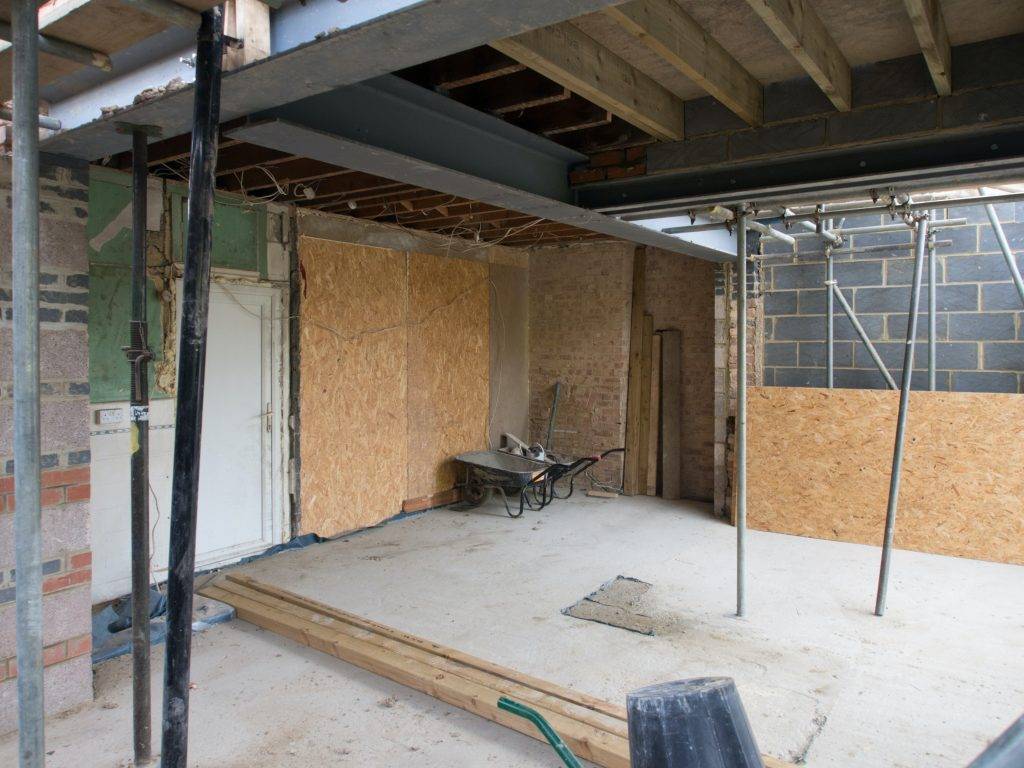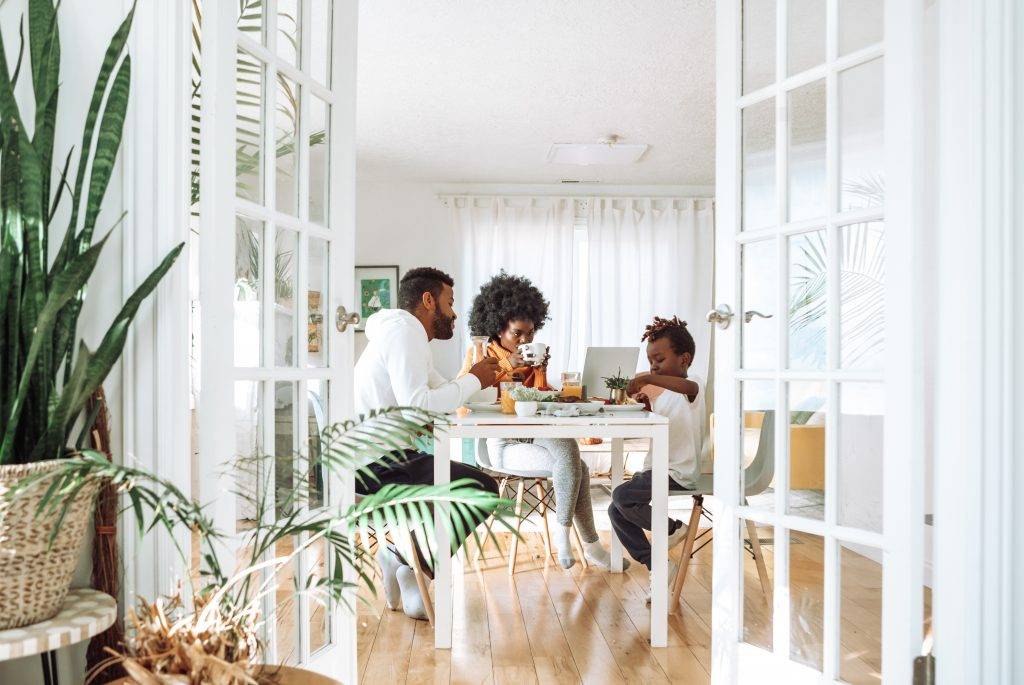Should I Stay or Should I Go? Hot tips to help you survive your renovation
Tips for homeowners living through a renovation, extension or addition
How to Decide Whether to Move Out or Live Through a First Floor Addition, Ground Floor Extension or Renovation?
Whether you are building a First Floor Addition, Ground Floor Extension or Renovation, the one question that our clients always ask us is can they stay in the home and live through construction or should they consider temporarily moving out? This is a big decision to make — with a lot of factors to consider other than your budget when entering into significant construction works to your home.
We have outlined below some of the factors to take into account when looking to stay or move.
Factor # 1 – Scope of works
<![endif]–>
What type of loans can you use to fund your addition or extension?
If you are building an addition or extension on your home you may find yourself needing to arrange finance to pay for the build. We can help you secure the appropriate finance for your build.
Refinance your current mortgage

To pay for your addition or extension you can opt to refinance your existing mortgage. This means that you will use the equity in your home to obtain a loan for a higher amount than what you currently owe to finance your addition or extension project.
The new loan will replace your old loan and you can choose to stay with your existing finance provider or move to a new finance provider. Refinancing has several advantages for homeowners with substantial equity in their homes.
First, it may allow you to obtain lower interest rates without changing your monthly mortgage payment or adding on a new payment.
Second, some lenders “may approve a loan based on the estimated value of your home once the addition is completed,” which is convenient for projects that require a large amount of money, such as a second story addition or ground floor extension.
Take out a Construction Loan
A construction home loan is a type of home loan designed for people who are building a new home, a first floor addition, ground floor extension or doing large scale renovations. It has a different loan structure to home loans designed for people buying an established or existing home.
A construction loan most commonly has a progressive drawdown. That is, you receive instalments of the loan amount at various stages of construction, rather than receiving it all at once at the start. You generally only pay interest on the amount that is drawn down, as opposed to on the whole loan amount.
A number of lenders offer construction loans that are interest-only during the construction period and then revert to a standard principal and interest loan.
Of course, a construction loan is just one potential source of funding for your project. The Federal Government recently unveiled its HomeBuilder scheme, which will give eligible homebuyers and existing owners grants of $25,000 to help them construct or substantially renovate their home. Strict eligibility criteria apply– for example, you’ll need to meet an income test, and be building a new home that’s worth less than $750,000 or a renovation that will cost at least $150,000. For more information visit our blog post here.
We can connect you with our finance specialist to discuss how to get started today.
Get a $25,000 contribution towards your Addition, Extension or Renovation through the HomeBuilder Program
Eligible Australians will be able to obtain a $25,000 HomeBuilder grant towards their addition, extension or major renovation under the near – $700 million federal government housing package in a bid to boost the economy and act as a lifeline to the home construction industry (Homebuilder program).
The government announced the $688 million HomeBuilder program on Thursday 4 June 2020. In an attempt to boost new projects between now and the end of the year, the Government will give $25,000 grants to owner-occupiers for certain works on their homes.
These works include first floor/second storey additions, ground floor extensions and large scale renovations.
Renovation work does not include structures separate to the main property, such as swimming pools, tennis courts, granny flats and sheds.
The scheme will not apply to investment properties or owners who intend on building or renovating on their own without the help of licensed builders.
The plan will be restricted to people on middle incomes and to new homes and major renovations valued between $150,000 to $750,000.
The pre-renovation value of the house must not exceed $1.5 million and excludes sheds, pools, granny flats and any other structures not attached to the property.
The temporary scheme that will last until the end of the year, aiming to build 30,000 homes by Christmas.
Construction of a new home or a substantial renovation (including first floor additions, second storey additions and ground floor extensions) must be contracted to begin within three months to prevent a rise in house prices.
The grants will be means-tested, allowing singles who earned up to $125,000 the previous financial year and couples who earned up to $200,000 to access the scheme.
The scheme will work along existing state and territory first-home owner grants programs, stamp duty concessions and other grant schemes, including the federal government’s first-home loan deposit scheme and first-home super saver scheme.
The HomeBuilder Program and its associated grants came to an end in March 2021.
If you’re planning a first-floor addition, ground floor extension or large scale renovation project you can start the planning process now. Or, reach out to our team below for more information.



 How much work is going to be done to your home? Are you doing a
How much work is going to be done to your home? Are you doing a 
 If you choose to live through the
If you choose to live through the  Can you deal with the noise coming from jackhammers, electric saws, welding machines, dump trucks, cement mixers, cement cutters, tamping machines, sledgehammers, and drills as early as 7AM and as late as 6PM?
Can you deal with the noise coming from jackhammers, electric saws, welding machines, dump trucks, cement mixers, cement cutters, tamping machines, sledgehammers, and drills as early as 7AM and as late as 6PM?  When the
When the 
